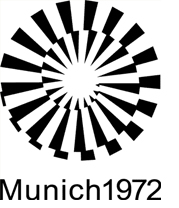| Sun | Mon | Tue | Wed | Thu | Fri | Sat |
|---|---|---|---|---|---|---|
| 1 | 2 | 3 | 4 | 5 | ||
| 6 | 7 | 8 | 9 | 10 | 11 | 12 |
| 13 | 14 | 15 | 16 | 17 | 18 | 19 |
| 20 | 21 | 22 | 23 | 24 | 25 | 26 |
| 27 | 28 | 29 | 30 | 31 |
CATEGORIES
RECENT ENTRIES
BLOG ROLL
The "Happy Games" that weren't
 “The official motto of the Munich Olympics was the Happy Games,” said Christopher Young, head of the German and Dutch department at the University of Cambridge, as he spoke to a small but rapt audience of social-sciences graduate students in Pick Hall. On a Friday afternoon in early December, students received a sneak preview of Young’s forthcoming book, The Munich Olympics 1972 and the Making of Modern Germany (University of California Press).
“The official motto of the Munich Olympics was the Happy Games,” said Christopher Young, head of the German and Dutch department at the University of Cambridge, as he spoke to a small but rapt audience of social-sciences graduate students in Pick Hall. On a Friday afternoon in early December, students received a sneak preview of Young’s forthcoming book, The Munich Olympics 1972 and the Making of Modern Germany (University of California Press).
 Young’s lecture—sponsored by the MAPSS program through the Earl and Esther Johnson Fund—focused on the years leading up to the ’72 Games and the stock that West German organizers had in hosting the event. According to Young, in the mid-1960s, the Federal Republic of Germany was at a crossroads. The country still faced the aftermath and stigma of World War II (e.g., the Auschwitz trials were underway in Frankfurt, revealing Nazi atrocities to the world). Nonetheless, West Germans viewed their present and future with optimism. They held high hopes for their country’s economic growth and forsook ideological struggle, as evidenced by a series of treaties between the FRG and the Soviet Union and talk of German reunification. This sunny, forward-looking climate facilitated Munich’s successful bid for the Olympics.
Young’s lecture—sponsored by the MAPSS program through the Earl and Esther Johnson Fund—focused on the years leading up to the ’72 Games and the stock that West German organizers had in hosting the event. According to Young, in the mid-1960s, the Federal Republic of Germany was at a crossroads. The country still faced the aftermath and stigma of World War II (e.g., the Auschwitz trials were underway in Frankfurt, revealing Nazi atrocities to the world). Nonetheless, West Germans viewed their present and future with optimism. They held high hopes for their country’s economic growth and forsook ideological struggle, as evidenced by a series of treaties between the FRG and the Soviet Union and talk of German reunification. This sunny, forward-looking climate facilitated Munich’s successful bid for the Olympics.
And “no other country took to the Games with the same zeal,” Young continued. Many West Germans had a passion for sport, and the country had much to gain from hosting the event. Eager to erase the enduring image of Hitler’s propaganda-laden 1936 Games in Berlin, the Munich organizers anticipated showing the world a rehabilitated and positive West Germany. And hosting the Games offered a tantalizing opportunity for economic growth; the 1956 Melbourne Olympics had proved an excellent investment for Australia as had the 1964 Tokyo Olympics for Japan.
In the end, the FRG’s intended themes of happiness and West German rehabilitation were shattered by the shocking murders of 11 Israeli Olympic delegation members by eight terrorists from the Palestinian group Black September. Today, a gray marble memorial to those who were massacred stands at the still-used site of the ’72 Games, Olympiapark München.
Four weeks after attending Young’s lecture, I visited Germany—which in 2009 celebrated the 20th anniversary of the fall of the Berlin Wall—and traveled to Olympiapark, now a multipurpose sports, entertainment, and cultural complex. After taking the U-Bahn a few stops outside of Munich’s downtown, I walked inside the gates and admired the architecture—the sloping transparent roofs laced with steel supports are particularly striking. Munich residents jogged up and down Olympiaberg, a formation of yellow-green hills, and swam leisurely laps in the same pool where Mark Spitz won seven gold medals. Visitors snapped photos, stood quietly before the Israeli memorial, and peered at the handprints of musicians who have performed at the complex: Genesis, Carlos Santana, and Snoop Dogg among them. Reading the final competition results etched in stone, I thought about the Munich Olympic organizers and how the venue today expresses many of their aims as explained by Young—generating revenue, attracting tourism, standing as a symbol of a renewed, peaceful nation.
In 2010, Olympiapark seems a happy place.
Katherine E. Muhlenkamp
RELATED READING
- "Rabbit Is Rich in Metaphor" (UChiBLOGo, Nov. 9, 2009)
January 20, 2010
